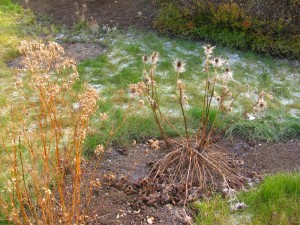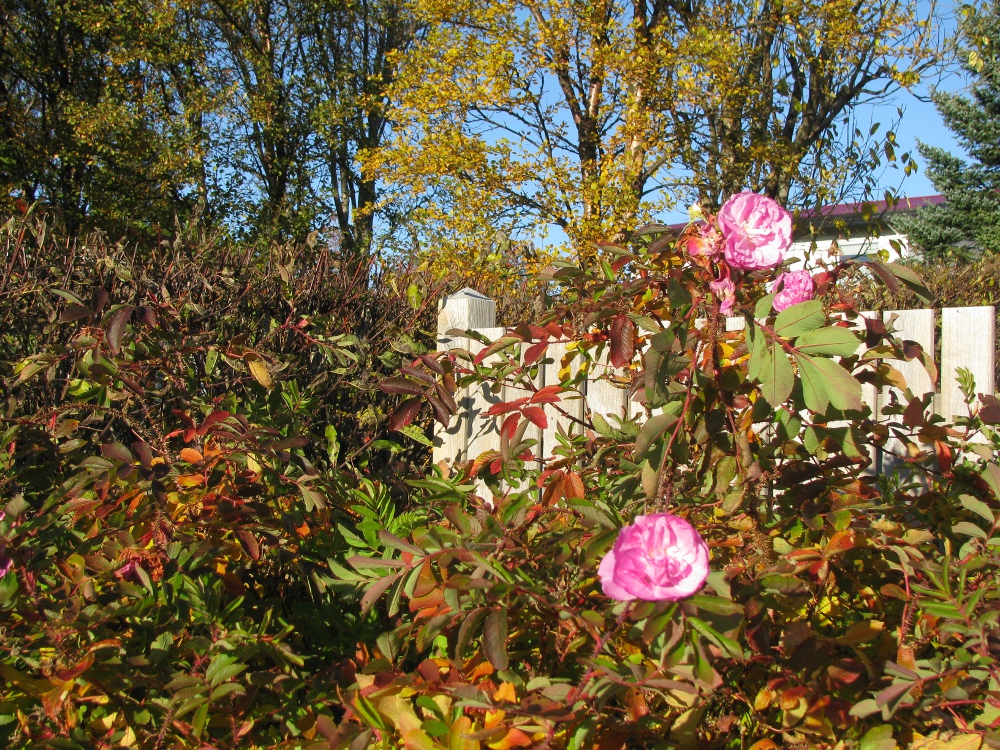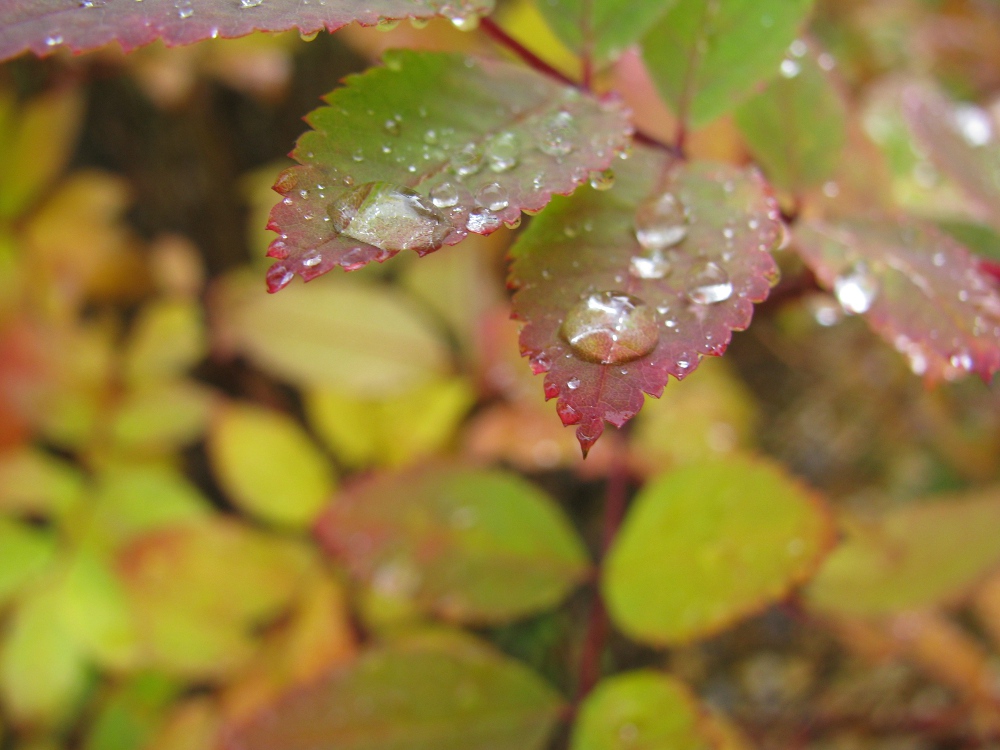The winter is here. Posted by hulda on Oct 27, 2012 in Icelandic culture, Icelandic customs, Icelandic history
 Happy New Year to all of you who use the old Nordic calendar! Today’s the first day of Gormánuður (= the month of half-digested hay) which is the first month of winter, and at the same time the first month of the year. This is when in times of old animals were slaughtered for the winter and other such preparations made, and for that Gormánuður has also been called Slátrunarmánuður (= butchering month). Nowadays Gormánuður always begins on a Saturday between 21st and 27th of October.
Happy New Year to all of you who use the old Nordic calendar! Today’s the first day of Gormánuður (= the month of half-digested hay) which is the first month of winter, and at the same time the first month of the year. This is when in times of old animals were slaughtered for the winter and other such preparations made, and for that Gormánuður has also been called Slátrunarmánuður (= butchering month). Nowadays Gormánuður always begins on a Saturday between 21st and 27th of October.
Gormánuður brought along with it a special blót (= sacrifice, eating party) called Fyrsti vetrardagur, Vetrarboð, or Veturnáttaboð (= first winter day, winter party, winter night’s party), which is the most commonly named old celebration in the medieval texts right after Yule. Eating royally was not just for the sake of having a great party but also done by necessity: during the slaughter time certain parts of the animals could not be prepared so that they’d last for long and therefore had to be eaten as soon as possible.
After Christianity took over this holiday was changed into a more Christian one, but this country being Iceland the old ways were never completely forgotten, especially not the ones that called for a feast. Icelanders do love any excuse to eat and drink – most importantly drink – until they drop, and some kind of a celebration has always been held around this time of the year. People also tried to foresee what the oncoming winter would be like for example by reading the vetrarbraut (= winter route), the Milky Way. Gormánuður was considered the best time of the year for seeing it and it would be read from east to west and divided in three parts, each symbolizing one part of winter.
Nowadays the old traditions have returned. My friends on Facebook are sharing statuses of sewing lambs’ bellies for slátur, Icelandic haggis, for the children at their kindergarten’s parental meetings. The Ásatrúarfélagið holds their annual first of winter blót today in Reykjavík. Most importantly, Icelanders have eagerly adopted parts of Halloween and included them in their autumn celebration, although I have to say Halloween in Iceland is very much a drinking party with costumes on and that all other aspects of it go more or less ignored. I’m assuming tonight the downtown’s going to be noisier than even on the Menningarnótt! Here’s some useful phrases for partaking in the partying:
Ég ætla fá einn bjór, takk. (= I’m going to have one beer, thank you.)* In case you’d like to order more than just one beer, remember to use þolfall: Ég ætla fá tvo bjóra, takk. If you don’t drink, you can use f.ex. ég ætla fá te/kók/vatnsglas (= I’m going to have tea/Coca Cola/glass of water).
Viltu dansa? (= Want to dance?)**
Nei takk, ég er fótbrotin/n. (= No thanks, my leg’s broken.)***
Hvar er ég? (= Where am I?)
Hver er ég? (= Who am I?)****
I was going to add a line for picking a fight but then I thought again. It’s never a good idea to pick a fight with a drunken Icelander. Be especially vary of the ladies, they pack a good punch.
I took this photo a week ago and now when I walk past this same bush the leaves are already gone. Autumn in Iceland is colourful and beautiful, but over in a blink of an eye.
*Icelanders do not use the word “please” in everyday speech. You can also drop the word “takk” if you want to, not using it will not be considered anything out of ordinary.
**Careful with this one, it’s more likely a pick up line than an actual request to dance.
***Hearing this one means that the person you’re hitting on with the above line does probably not fancy you. Choose the gender of the word fótbrotin(n) based on your own: fótbrotin (fem.), fótbrotinn (masc.).
****At this point you better go home, you’re too drunk.

Build vocabulary, practice pronunciation, and more with Transparent Language Online. Available anytime, anywhere, on any device.
About the Author: hulda
Hi, I'm Hulda, originally Finnish but now living in the suburbs of Reykjavík. I'm here to help you in any way I can if you're considering learning Icelandic. Nice to meet you!





